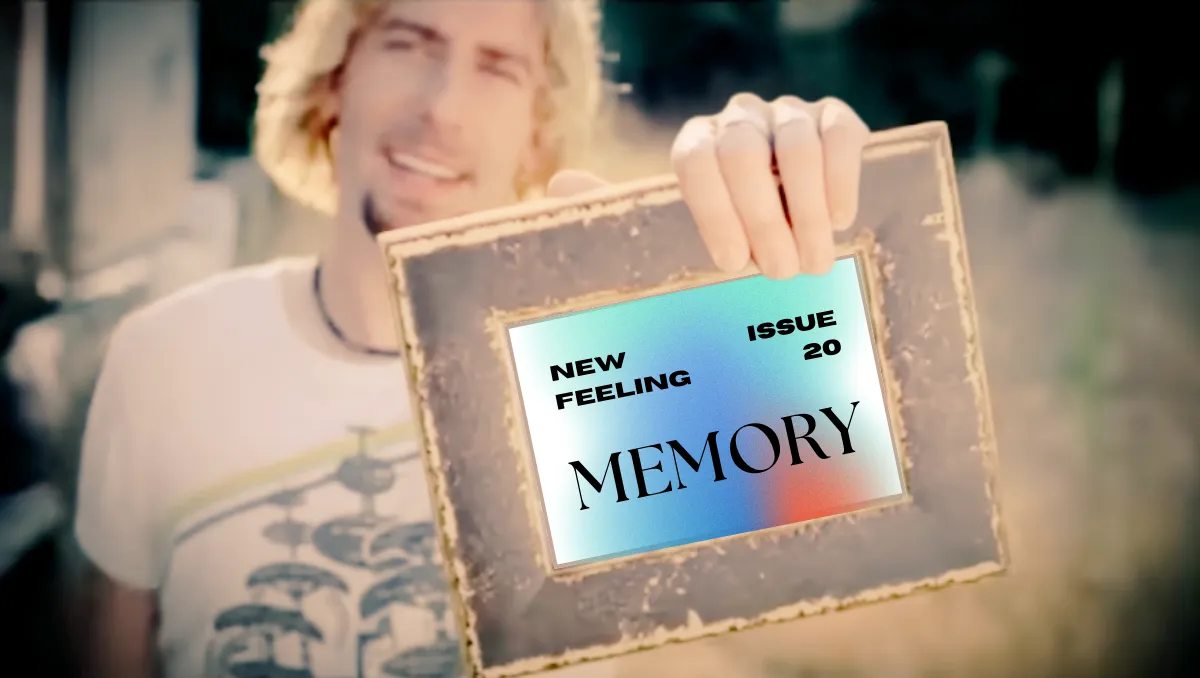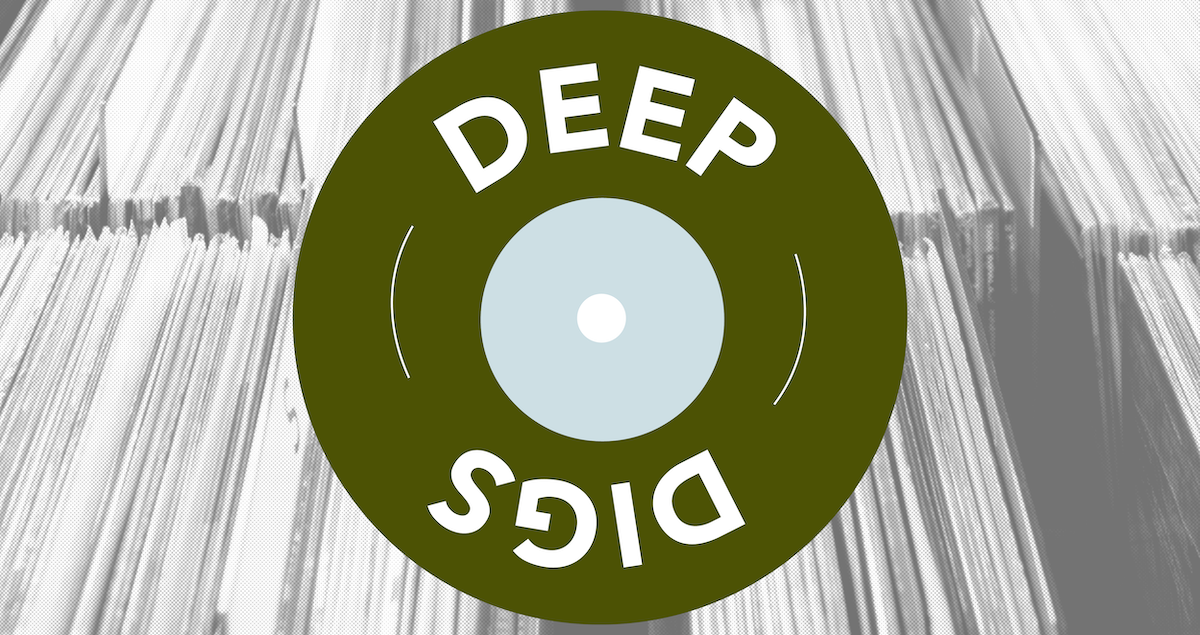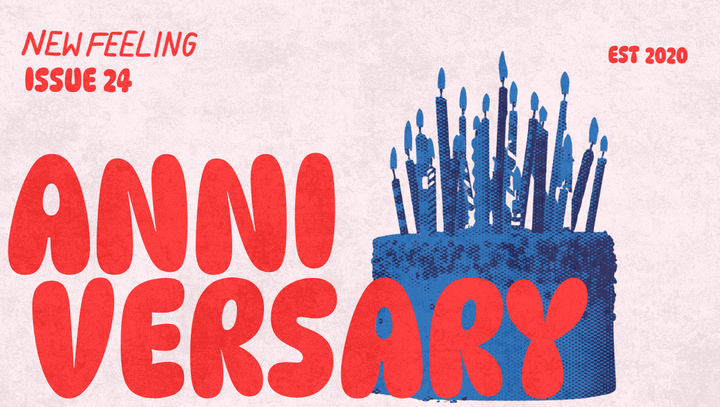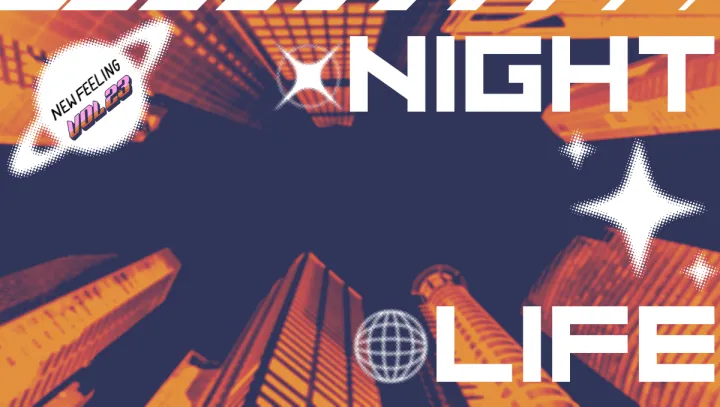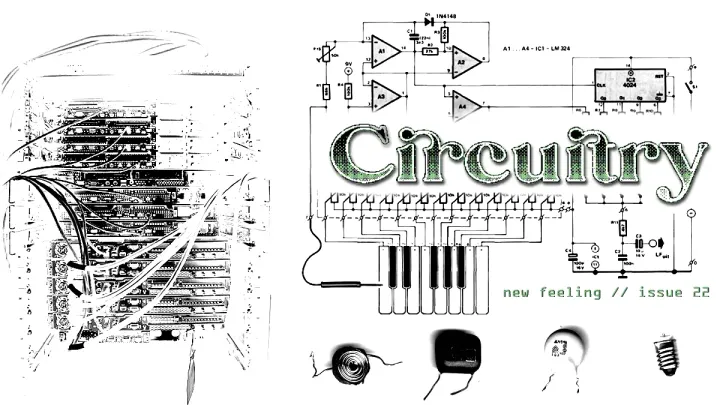ISSUE 20: MEMORY
The power of memory is stronger than a brick building, or lines of prose on an ad-saturated webpage, but it feels more and more that memory, and the way we remember, is under attack.
In our most recent New Feeling Reading Group, led by our community lead Rosie Long Decter, we talked through the introduction and first chapter of John S. Garrison’s new book from the 33 ⅓ series, Various Artists' Red Hot + Blue. Garrison’s framing of the record is really interesting as he uses it as a way to explore how music can collapse time: from Cole Porter’s success in the 1930s; to the reimagining and recontextualising of his work through the 1990 compilation benefitting HIV/AIDS activist organization ACT UP; to Garrison’s own “belated” relationship to the Red Hot compilation and how the AIDS crisis was affecting the gay community that he was joining, plus his own relationships to these memories today.
Rosie asked the group why we think music has the power to create such strong linkages to time and place, and for me, the answer lies in the emotional content of the music itself. I have very strong sense memories, like how walking across a hot and sun-drenched beach barefoot reminds me of being 5 years old and racing my way over scalding sand to find cool relief in the lapping water, but these relationships between the trigger and the memory feel as though they’re fixed.
Whereas with music, it feels like there’s a deeper well of memory that we’re constantly developing, from the work itself which can purposefully recall or quote from another time, to our own relationship to that music and its meaning, and how all of these memories can hold true at once. When I hear David Bowie’s “Station to Station,” I remember hearing it for the first time twenty years ago in my dorm, and just being bowled over. He was standing on the precipice of a major career shift, singing "it's too late" over and over, and here I was some forty years later staring down my twenties— the resonance was electric and hypnotic. Later, the song would leave a different kind of impression the day that he died. I was listening back through his entire discography, and hearing this song helped me take some comfort in knowing that he was just moving on to another new, uncharted phase. All of those memories wash over me now as I listen back today. As Sasha Geffen writes in the introduction to Glitter Up The Dark: “Music enters the ear, causes pleasure, and inspires identification in the listener, who is not merely a passive participant in the encounter. The listener joins the singer in the song’s ambiguous and ephemeral space, and is changed by the act of attentive, emotional listening.”
As I write this, Toronto is preparing to send off one of its most beloved DIY spaces, Soybomb. For 20 years it served as an important anchor for the city’s DIY scene as a living, practice, and performance space. It was foundational to me as a music fan, and as a writer trying to make sense of and connect with music and musicians in the city. It was the site where I recorded many of the interviews that informed my first article about the hardcore punk scene, and later, a place I helped eulogize when the performance space was forced to shutter, thanks to a targeted attack by right-wing trolls. The space is now completely shutting down after a protracted battle with the landlords, who are evicting the tenants so that the building can be demolished to make way for— you guessed it— condos.
Adding insult to injury, the two outlets where I wrote about the space the most, VICE and NOW Magazine, have both gone through major forms of restructuring, with huge layoffs at VICE, and NOW being under completely different ownership (one which managed to buy the license to the magazine’s archive but not their unpaid debts to freelancers or previously laid-off staff). There’s no telling what will happen to these archives when they become no longer convenient to host. So not only are the artists and venues in our cities under threat thanks to the financialization of housing and growing right-wing mobilization, but even where and how we go about remembering them when they’re evicted or shut down is being actively dismantled.
The power of memory is stronger than a brick building, or lines of prose on an ad-saturated webpage, but it feels more and more that memory, and the way we remember, is under attack. From the widespread cuts to arts funding, to the suit against and later cyber attack on the Internet Archive, to the rampant proliferation of AI images and blog posts, to referring to an ongoing pandemic in the past tense, to the way someone like JK Rowling wields Holocaust denial to spout transphobic hate, to Israel’s genocide of Palestinians— specifically targeting universities and journalists so there will be no one left to remember or bear witness. In the face of all of this erasure, memory, and collective memory, is something we need to protect and hold dear.
I’m reminded of the very first Editor’s Note we published at New Feeling, which I was lucky enough to write, long before I took on the position of Features Editor. It was August 2020, and the theme was “Renewal.” In it, I wrote “Our ability to build a new, sustainable model for what music journalism can look like hinges on our understanding of what has come before and learning from it.” We can only attempt to understand and learn if we remember.
It’s in that spirit that we bring you our 20th (!) issue, Memory.

Are You Listening? The Power of Paying Attention Explored Through Audio Archiving
Tia Julien
In what feels like our most experimental and ambitious article to-date, Tia Julien does a series of soundwalks and field recordings throughout Toronto, exploring the relationship between spontaneity and activism in the city. Readers are encouraged to listen to Tia’s recordings as they read through the piece.
Rosie Long Decter interviews Jula, the Canadian musician behind the incredibly popular TikTok @soundwavesoffwax. Each day, Jula selects an album from the massive collection of music her father left to her in his passing. Rosie spoke to Jula about the experience of connecting with her late father through music, and the community of people who have found her loving tribute resonant.
In our newest installment of Deep Digs, Daniel G. Wilson brings us another long lost classic, highlighting Breach of Trust’s 2000 alternative rock epic, Songs For Dying Nations. Daniel traces the album’s origins and details how the all-Indigenous group was met with a music industry unprepared for how to market their sound, and even less able to acknowledge the truths in the band’s lyrics and themes.
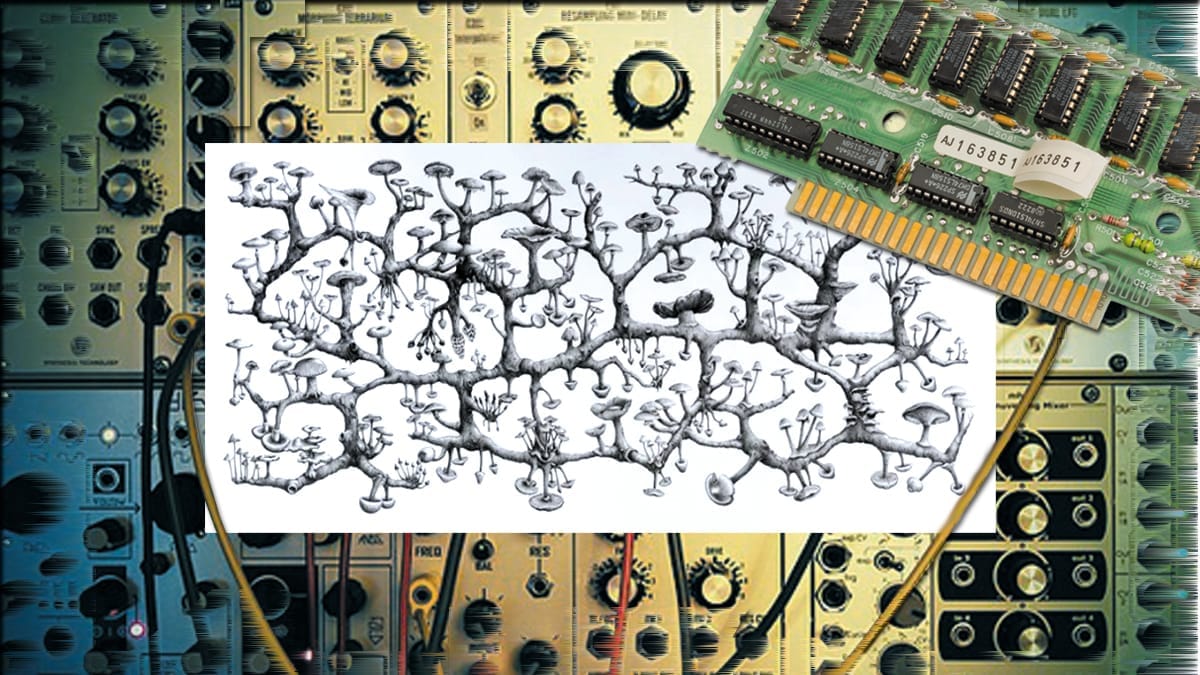
Beyond Random Access: Grassroots Music Organizations on the Benefits of Decentralizing Institutional Memory
Tom Beedham
Meanwhile, Tom Beedham looks at the state of institutional memory in Canadian music, speaking to organizers of festivals and artist-run centres about the difficult but necessary work of looking back in order to chart successful, sustainable paths forward.

Revolutionary Rhymes: The Collective Power Behind Rapper Cee Reality’s “Fuck The Colonizers”
Michael Rancic
And, continuing in our partnership with Toronto-based alternative newspaper The Grind, I have a profile of hip hop artist Cee Reality, whose album Fuck The Colonizers is a direct and honest indictment of the imperial powers that are fanning the flames of genocide in Palestine.
This is one hell of an issue and one that I’m honoured to introduce. It’s also bittersweet as it’s my last as Features Editor. I’ll be transitioning out of the role and handing the reins over to the very capable Tom Beedham. I’m excited to see the direction our issues take under his guidance, and can’t wait for you to read what we have planned. Thank you to the members of the editorial working group, along with all of the freelancers I’ve been lucky to collaborate with during my tenure. I’m really proud of the work we’ve done together.
– Michael Rancic
Editorial: Daniel G. Wilson, Tabassum Siddiqui (public editor), Michael Rancic, Leslie Ken Chu, Sarah Chodos, Tom Beedham (features editor)
Community: Daniel G. Wilson, Michael Rancic, Rosie Long Decter (lead)
Care: Tabassum Siddiqui (Public Editor), Sarah Chodos (lead), Tom Beedham
Organization: Michael Rancic, Leslie Ken Chu, Tom Beedham
Budget: Michael Rancic, Leslie Ken Chu
Web: Laura Stanley (lead), Michael Rancic, Leslie Ken Chu

